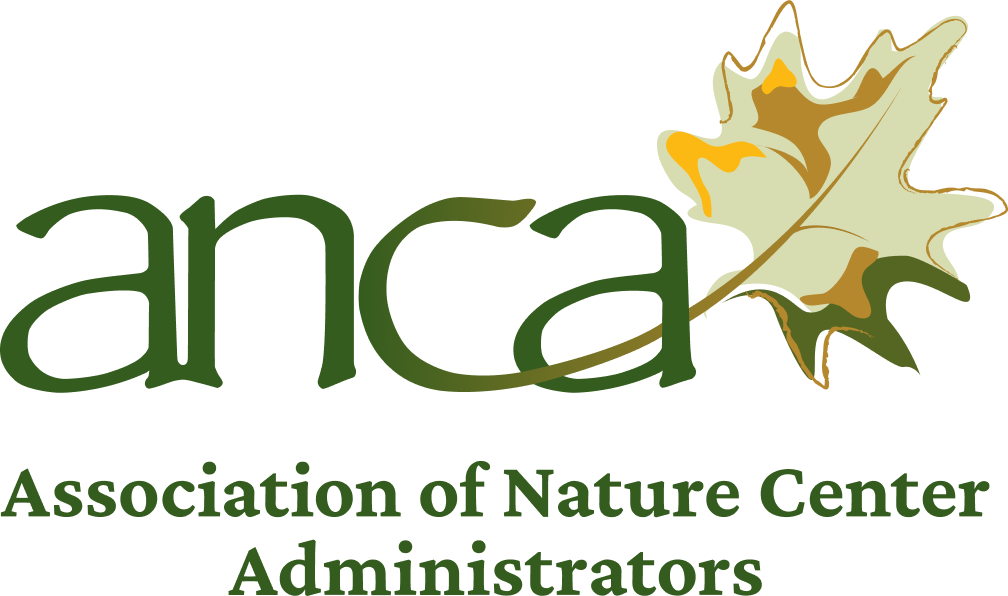Across North America, nature centers and related environmental organizations help millions of people connect with the outdoors and build stronger, healthier communities. Whether providing outdoor recreation, fostering environmental stewardship, or offering education, nature centers play a central role in helping people engage with and protect the natural world.
However, the success of these centers depends on the strength and expertise of the professionals who run them. That’s where ANCA comes in.
ANCA equips nature center professionals with the tools, knowledge, and networks they need to lead their organizations to success. Through our programs and services, we offer tailored support to these leaders, providing opportunities for professional development and peer learning that they can’t find elsewhere.
ANCA supports a community of over 750 members, including directors, senior administrators, and managers of nature centers and related organizations. Ultimately, our work helps these organizations have a greater impact in their own communities, reaching more people and strengthening their connection to the outdoors.
Mission
The Association of Nature Center Administrators promotes and supports best leadership and management practices for the nature and environmental learning center profession.
Core Values
As an Organization, a Staff, and a Board;
- We are an Inclusive, Welcoming, and Supportive Community.
- We value Learning and Sharing.
- We believe that the Collective Wisdom and Diversity of our Peer Network is our greatest resource.
Vision of Success
Guided by our mission and values, ANCA’s Vision of Success articulates the long-term direction of the organization and the outcomes we strive to achieve:
- ANCA will sustain and expand organizational capacity and financial stability to meet its current and future objectives.
- ANCA will maintain and promote best practices for diversity, equity, and inclusiveness within our membership and the profession.
- ANCA will continue to recognize and promote its core values while responding & adapting to trends within the dynamic profession.
- ANCA will be the leading source for professional development tools and relevant resources for leaders and aspiring leaders in the nature and environmental learning center field.
- ANCA will explore, refine, and amplify its voice in advocacy and civic engagement on issues relevant to our mission and community.
Diversity, Equity & Inclusion Statement
ANCA will model diversity, equity and inclusion (DEI) in all our policies, practices and procedures. ANCA will:
- Create a diverse, equitable and inclusive membership by recruiting members from all arenas of the nature center and environmental learning profession as well as by retaining current members.
- Communicate our policies and procedures related to diversity, equity and inclusion to our members and non-members alike.
- Conduct programs and provide services that support and encourage our membership to include DEI policies and strategies in their work in their own communities
- Collect, conduct and share best practices related to our work on DEI to the profession.
Public Policy and Advocacy Strategy
ANCA may take public positions on governmental and non-governmental activities when these activities may impact our ability or capacity to accomplish our mission or affect the nature and environmental learning center profession and professionals. Our plan and strategies will focus on actions that impact the ANCA community at large.
As part of this strategy, ANCA will:
- work to connect ANCA members to public policy and advocacy resources they need to unify in response to an issue.
- work to expand public awareness of issues that affect our members and profession.
- work to increase financial support to the field of nature and outdoor education.
- work to ensure that public access to nature and open spaces is inclusive and equitable.
- work to build relationships to elevate our public policy and advocacy work.
Our plan will include calls to action when we need our members and the nature and environmental learning center profession to perform an action to call attention to an issue. Learn more about our Public Policy and Advocacy Strategy here.
Land Acknowledgement
ANCA’s staff operates remotely throughout what is today the United States. Our main office is located on the ancestral and contemporary land of the Eastern Shoshone and Shoshone-Bannock in Logan, Utah, and our remote staff work and live on the land of the Anishinaabe peoples in Detroit, Michigan, and also on the land of the Shawnee and Miami, in Dayton, Ohio. We acknowledge that all of these peoples have endured extreme violence and forced removal throughout colonial history, and that the violent history continues today. We aspire to fully honor the legacy of these Indigenous peoples and to respect the lands we are on.
